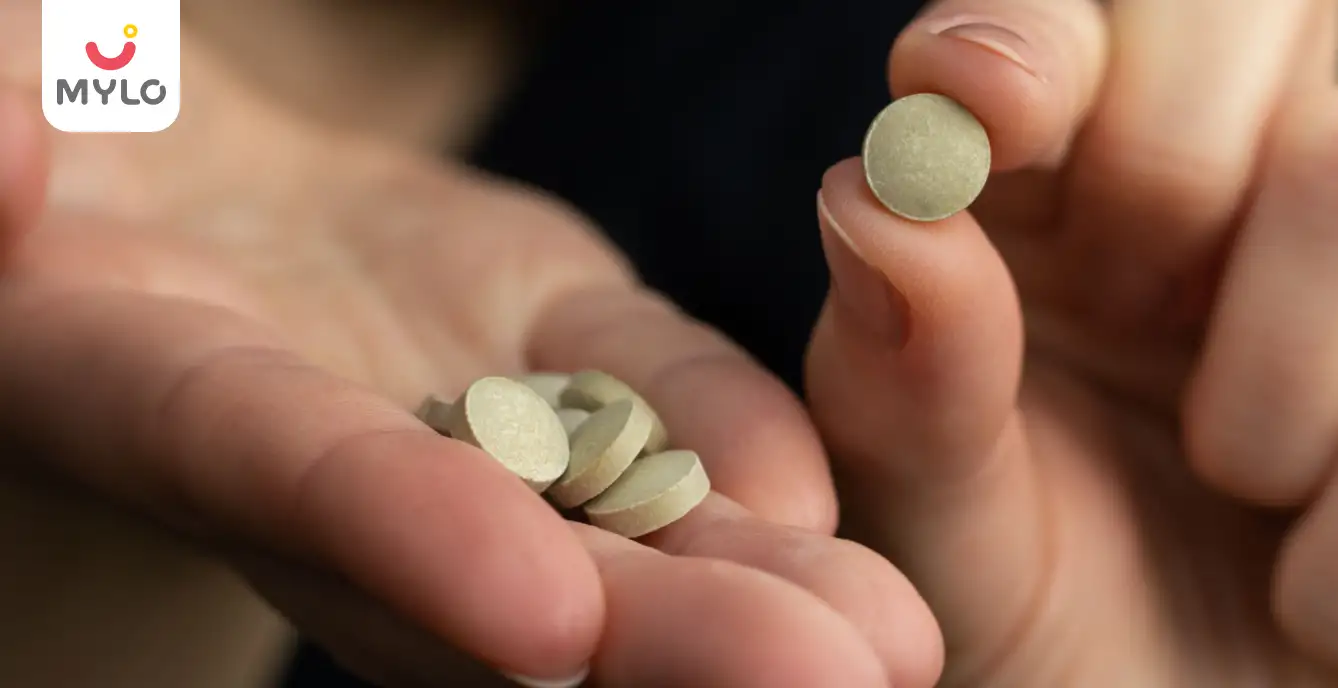Home

Chamomile: The Ultimate Guide to Discovering its Medicinal Properties and Health Benefits
In this Article

Getting Pregnant
Chamomile: The Ultimate Guide to Discovering its Medicinal Properties and Health Benefits
Updated on 13 September 2023



Medically Reviewed by
Dr. Shruti Tanwar
C-section & gynae problems - MBBS| MS (OBS & Gynae)
View Profile

Chamomile, the dainty and aromatic flower, has been cherished for centuries for its remarkable healing properties. This ancient herb, known for its soothing and calming effects, has found its way into traditional medicine practices around the world. From ancient Egypt to the modern age, chamomile has been hailed as a remedy for various ailments and a promoter of overall well-being.
In this comprehensive guide, we will dive into the origins, medicinal properties, and the myriad of ways it can benefit your health.
What is Chamomile?
Chamomile is a daisy-like plant that belongs to the Asteraceae family. It has been used for centuries in traditional medicine due to its numerous health benefits. The most common type of chamomile used for medicinal purposes is German chamomile (Matricaria chamomilla), although Roman chamomile (Chamaemelum nobile) is also used.
It is known for its calming properties and is often consumed as a tea. It contains several bioactive compounds, including flavonoids, terpenoids, and antioxidants, which contribute to its medicinal properties. These compounds have anti-inflammatory, antimicrobial, and antioxidant effects, making chamomile a versatile herb with a wide range of potential health benefits.
You may also like : Shankhpushpi: Discover the Health Benefits of This Ancient Herb
Can You Drink Chamomile Tea Everyday?
Chamomile tea is safe for most people to consume daily. However, it's important to note that chamomile can cause allergic reactions in some individuals, especially those who are allergic to ragweed or other plants in the Asteraceae family. If you have allergies, it's best to consult with a healthcare professional before adding chamomile tea to your daily routine.
Drinking chamomile tea everyday can provide a range of health benefits. It can help improve sleep quality, reduce stress and anxiety, promote healthy digestion, manage PCOS symptoms, and regulate blood sugar levels. However, it's important to remember that chamomile tea is not a substitute for medical treatment. If you have any underlying health conditions, it's always best to seek advice from a healthcare professional.
What are the Most Common Chamomile Benefits?
Let us take a look at the some of the benefits of this medicinal flower:
1. Improves sleep quality
Chamomile tea is widely known for its calming properties, making it an excellent natural remedy for improving sleep quality. The flavonoids in chamomile bind to certain receptors in the brain, promoting relaxation and reducing insomnia symptoms. Drinking a cup of chamomile tea before bed can help you unwind and prepare for a restful night's sleep.
2. Reduces stress and anxiety
Chamomile tea has long been used as a natural remedy for reducing stress and anxiety. It contains compounds that bind to receptors in the brain, promoting relaxation and reducing feelings of anxiety. Regular consumption of chamomile tea can help alleviate symptoms of generalized anxiety disorder, promote a sense of calmness, and improve overall well-being.
3. Promotes healthy digestion
Chamomile tea has been used for centuries to soothe digestive issues. It has anti-inflammatory properties that can help reduce inflammation in the digestive tract, easing symptoms of indigestion, bloating, and gas. Additionally, chamomile tea can stimulate the production of digestive enzymes, aiding in the breakdown of food and promoting healthy digestion.
4. Manages PCOS symptoms
Polycystic ovary syndrome (PCOS) is a hormonal disorder that affects many women. Chamomile tea has been found to have anti-androgenic properties, meaning it can help regulate hormone levels associated with PCOS. Regular consumption of chamomile tea may help manage symptoms such as irregular periods, acne, and excess hair growth.
5. Regulates blood sugar levels
Chamomile tea may also have a positive effect on blood sugar levels. Some studies have shown that chamomile extract can help regulate blood sugar levels, making it beneficial for individuals with diabetes. However, more research is needed to fully understand the potential effects of chamomile on blood sugar regulation.
Are There Any Side Effects of Chamomile?
While chamomile is generally safe for most people, it can cause allergic reactions in some individuals, especially those with allergies to ragweed or other plants in the Asteraceae family. Allergic reactions may include skin rash, itching, and difficulty breathing. If you experience any of these symptoms after consuming chamomile, it's important to seek medical attention immediately.
Chamomile may also interact with certain medications, including blood thinners and sedatives. If you are taking any medications, it's important to consult with your healthcare provider before adding chamomile to your daily routine to avoid any potential interactions.
You may also like : Safed Musli: The Secret Ingredient to Boost Your Immune System and Lifestyle
How to Make Chamomile Tea?
Making chamomile tea is a simple and enjoyable process. Here's a step-by-step guide on how to make chamomile tea at home:
-
Boil water in a kettle or saucepan.
-
Place 1-2 teaspoons of dried chamomile flowers or a chamomile tea bag in a cup.
-
Pour the boiling water over the chamomile flowers or tea bag.
-
Let the tea steep for 5-10 minutes to allow the flavors and medicinal compounds to infuse.
-
Strain the tea to remove the chamomile flowers or tea bag.
-
Add honey or lemon if desired for added flavor.
-
Enjoy your homemade chamomile tea!
You may also like : Moringa Powder: The Superfood You Need in Your Diet for a Healthy Lifestyle
Final Thoughts
Chamomile is a versatile herb with a wide range of potential health benefits. Whether consumed as a tea or used topically, chamomile can help improve sleep quality, reduce stress and anxiety, promote healthy digestion, manage PCOS symptoms, and regulate blood sugar levels. However, it's important to remember that chamomile is not a substitute for medical treatment, and it's always best to consult with a healthcare professional before adding any new herbal remedies to your routine.
References
1. Srivastava JK, Shankar E, Gupta S. (2010). Chamomile: A herbal medicine of the past with bright future. Mol Med Rep.
2. Dai YL, Li Y, Wang Q, Niu FJ, Li KW, Wang YY. (2022). Chamomile: A Review of Its Traditional Uses, Chemical Constituents, Pharmacological Activities and Quality Control Studies. Molecules.





Medically Reviewed by
Dr. Shruti Tanwar
C-section & gynae problems - MBBS| MS (OBS & Gynae)
View Profile


Written by
Anandita Sharma
Drawing on more than a decade of expertise in administration, Anandita Sharma currently serves as a content operations e
Read MoreGet baby's diet chart, and growth tips

Related Articles
Related Questions
Hello frnds..still no pain...doctor said head fix nhi hua hai..bt vagina me pain hai aur back pain bhi... anyone having same issues??

Kon kon c chije aisi hai jo pregnancy mei gas acidity jalan karti hain... Koi btayega plz bcz mujhe aksar khane ke baad hi samagh aata hai ki is chij se gas acidity jalan ho gyi hai. Please share your knowledge

I am 13 week pregnancy. Anyone having Storione-xt tablet. It better to have morning or night ???

Hlo to be moms....i hv a query...in my 9.5 wk i feel body joint pain like in ankle, knee, wrist, shoulder, toes....pain intensity is high...i cnt sleep....what should i do pls help....cn i cosult my doc.

Influenza and boostrix injection kisiko laga hai kya 8 month pregnancy me and q lagta hai ye plz reply me

Related Topics
RECENTLY PUBLISHED ARTICLES
our most recent articles

Women Specific Issues
Endometrial Thickness in Pregnancy: Your Guide to Understanding What is Normal

Menstrual Cycle
Hypomenorrhea: When Your Period is Lighter Than Usual

Scans & Tests
Anti Mullerian Hormone Test: The Key to Early Detection of Fertility Issues

Medical Procedures
Benefits of HSG Test: The Secret to Boosting Your Chances of Getting Pregnant

Reproductive health
Deviry Tablet Uses: How to Maximize The Benefits for Your Reproductive Health

In Vitro Fertilization (IVF)
Endometrial Thickness for IVF: The Ultimate Guide to Successful IVF Outcomes
- Normal Endometrial Thickness: A Key Indicator of Female Fertility
- Uterine Artery Embolization: A Non-Invasive Solution for Fibroids
- Deviry 10mg for Menstrual Disorders: Is It the Right Choice for You
- Hyperprolactinemia: How High Prolactin Levels Can Affect Your Chances of Conception
- Myomectomy: A Comprehensive Guide to Uterine Fibroid Removal Surgery
- The Hormonal Dance: Understanding Which Hormones Regulate Menstrual Cycle
- 7 home remedies to cure cough and cold in infants
- How to Increase Endometrial Thickness: Your Guide to Science-Backed Tips
- Endometrial Scratching: The Ultimate Guide to Meaning, Benefits and Impact on Conception
- The Ultimate Guide to Buying a Baby Bath Tub for New Parents
- Strawberry in Pregnancy: Why Should This Fruit Be on Your Pregnancy Platter?
- Benefits of Wearing a Pregnancy Belt Before Delivery
- PCOS Treatment in Homeopathy: The Ultimate Guide to Natural Remedies
- Manjistha: Ayurveda's Best-Kept Secret for Health and Beauty


AWARDS AND RECOGNITION

Mylo wins Forbes D2C Disruptor award

Mylo wins The Economic Times Promising Brands 2022
AS SEEN IN

- Mylo Care: Effective and science-backed personal care and wellness solutions for a joyful you.
- Mylo Baby: Science-backed, gentle and effective personal care & hygiene range for your little one.
- Mylo Community: Trusted and empathetic community of 10mn+ parents and experts.
Product Categories
baby carrier | baby soap | baby wipes | stretch marks cream | baby cream | baby shampoo | baby massage oil | baby hair oil | stretch marks oil | baby body wash | baby powder | baby lotion | diaper rash cream | newborn diapers | teether | baby kajal | baby diapers | cloth diapers |




